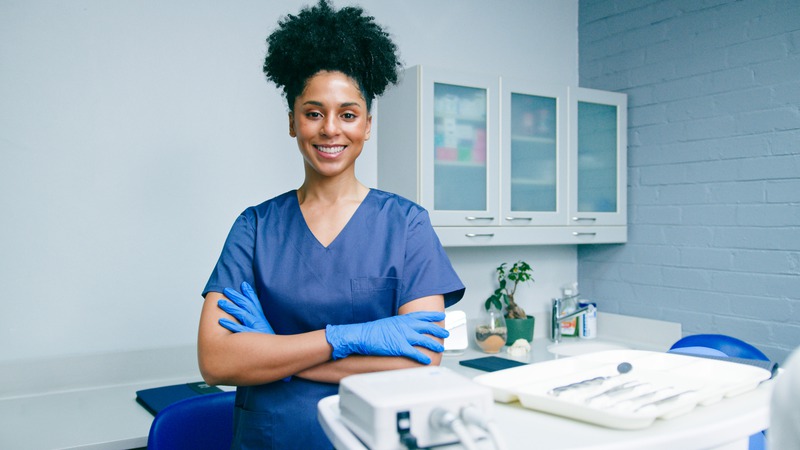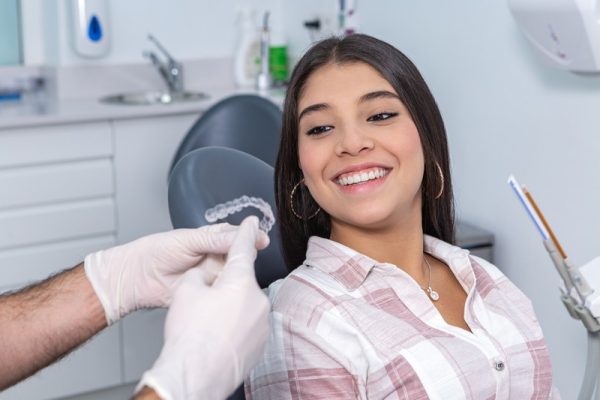How Can I Prevent Oral Injuries in Athletes?
Oral injuries are common among athletes participating in various sports activities. From minor cuts to more severe tooth fractures, these injuries can negatively impact sports performance and overall oral health. Athletes of all ages must prioritize safety by taking proactive measures to protect against potential oral damage during sports.
Different Ways to Prevent Oral Injuries in Athletes
Wear Protective Mouthguards
Choosing the right type of mouthguard helps minimize the risk of dental and oral injuries significantly. Mouthguards absorb impacts, reducing the chances of broken teeth, cut lips, or more serious damage to the jaw area. Athletes involved in high-impact sports like football, boxing, basketball, or hockey should always wear these protective devices during both practice and competitions.
There are generally three types of mouthguards: stock mouthguards, which are pre-formed; boil-and-bite mouthguards, which athletes mold themselves; and custom-fitted mouthguards, tailored by dental professionals. Custom-fitted mouthguards offer the best protection as they conform accurately to an individual’s dental structure, enhancing comfort and safety.
Adopt Proper Sportsmanship and Rules
Playing a sport ethically and following established safety rules reduces aggressive behaviors that may lead to oral injuries. Coaches and team leaders must emphasize proper sportsmanship values such as respect, fairness, and discipline among team members. When athletes maintain good attitudes and become less aggressive during competitive play, the chances of injuries caused by intentional roughness are significantly reduced.
Also, officials must strictly enforce rules during games to ensure safe practices. Penalizing dangerous behaviors such as unnecessary aggression or violent play will further encourage athletes to approach games responsibly. Injuries due to collisions and aggressive tactics decrease dramatically with consistent rule enforcement.
Maintain Astute Awareness During Games
Remaining alert and aware of the surroundings during the game helps athletes prevent sudden oral injuries. Being aware enables athletes to respond promptly to unforeseen actions from other players, such as sudden impacts or aggressive moves, safeguarding themselves effectively. Staying attentive also reduces injury risks, such as accidental hits or knocks during gameplay.
Athletes should frequently practice situational awareness during training sessions. Coaches could run frequent drills simulating game-time scenarios to help athletes become familiar with reacting instantly to sudden impacts. Continuous practice improves response rates while enhancing overall safety on the field or court.
Properly Fit Helmets and Faceguards
For contact sports involving significant collisions and impacts, helmets and faceguards are essential in preventing oral injuries. Proper helmet fitting involves ensuring a snug and secure fit around the athlete’s head, providing adequate stability during gameplay. Loose or improperly fitted helmets could come off during collision situations, increasing oral injury risks.
Some helmets come with attached faceguards that help shield the athlete’s face, reducing impacts affecting delicate oral structures such as teeth, lips, and jaws. Faceguards must offer secure coverage without obstructing an athlete’s vision or comfort. Regular maintenance involving inspecting for cracks and replacing broken parts remains essential to ensure maximum protection during sports activities.
Condition Regularly to Prevent Fatigue-Related Injuries
Regular exercise and conditioning enable athletes to sustain optimal performance without succumbing quickly to fatigue, which often increases vulnerability to injuries like oral trauma. Fatigue can impair an athlete’s awareness, concentration, and reaction times during sports activities, making them prone to mishaps causing oral injuries. Conditioning programs designed to boost overall stamina, agility, and endurance prove helpful in minimizing these risks effectively.
Coaches should develop customized conditioning programs considering the physical demands of specific sports, ensuring sufficient rest and recovery periods between training sessions. Athletes must strictly follow tailored training regimens to build endurance progressively, reducing injury likelihood significantly during performance. Balanced nutritional diets play essential roles, helping sustain energy levels while enhancing athletic conditioning benefits for preventing sports-related injuries.
Avoid Chewing Hard Objects During Gameplay
Athletes sometimes habitually chew hard items like mouthguards, ice, fingernails, or other solid materials during gameplay or practice sessions. Chewing these objects might result in damaging teeth or breaking restorative dental equipment like crowns or dental fillings. Coaches must continually educate team members on this crucial habit change to protect their teeth while participating in each game.
Encourage athletes to keep hydration solutions or soft foods nearby instead of chewing hard items, helping them avoid damage-causing practices naturally. Fostering positive behavioral practices is critical for safeguarding oral health and preventing accidental injuries linked to harmful chewing behaviors among athletes.
Stay Hydrated to Promote Oral Health
Proper hydration can prevent oral injuries indirectly by helping maintain general health, reducing fatigue, and promoting overall alertness. Dehydration often leads to dry mouth, which reduces saliva flows essential for naturally cleaning and protecting oral tissues. Limited saliva flow causes uncomfortable dryness, cracked lips, and increases vulnerability to oral injuries and infections.
Regularly consuming fluid and electrolyte-rich hydration solutions will decrease dry mouth occurrences. Athletes should incorporate hydration routines regularly before, during, and after gameplay, thereby boosting oral health and performance effectiveness significantly. Coaches must emphasize proper hydration techniques alongside training regimens, ensuring players include ample fluid intake regularly.
Addressing Oral Injuries Immediately After Occurrence
Immediate Action Steps
-
Stay calm and assess the nature of the oral injury.
-
Apply gentle pressure using clean materials like gauze or cloth to control bleeding effectively.
-
Rinse the mouth carefully with warm water if possible, eliminating debris around damaged oral areas.
-
Utilize cold packs applied externally around the impacted facial area gently for approximately fifteen minutes to reduce pain and swelling.
Seek Professional Dental Assistance Quickly
Athletes experiencing serious oral problems should promptly find an emergency dentist near me and address oral emergencies effectively. Immediate professional assistance ensures timely evaluation and accurate diagnosis, hastening essential healing processes vital for damaged teeth and oral tissue. Acting immediately on oral issues significantly reduces complications and additional dental expenses arising from delayed treatments.
Explore Potential Dental Treatments Post-Injury
Consult qualified dental professionals for diverse treatment options following damage occurrences involving tooth fractures or trauma. Choices such as dental bonding, implants, dental crowns, or veneers exist, offering various approaches tailored specifically to each athlete’s particular requirements regarding healing methods and budget constraints. Follow dentists’ recommendations explicitly, considering essential recovery periods suggested for effectively healing damaged oral structures.
Some instances necessitate exploring root canal options, especially where tooth damage might expand internally toward nerves. Proper dental treatments performed promptly reduce the chances of severe long-term dental problems resulting from unresolved oral injuries. Continued follow-up appointments ensure progressive gum healing monitoring, contributing to better recovery outcomes for athletes encountering dental trauma events.
Considering Cosmetic Dental Procedures
Post-injury cosmetic dental options may benefit athletes concerned about oral aesthetics impacted by sustained injuries, improving smiles significantly. Procedures like veneers, whitening treatments, or correcting tooth alignment might interest athletes wanting confidence improvements regained following accidental damages impairing smile appearances. Learning more about cosmetic dental treatments provides athletes with methods to enhance aesthetic concerns effectively post-injury.
Final Thoughts
Athletes must proactively utilize protective equipment, maintain sportsmanship attitudes, condition effectively, and address dental injuries immediately if necessary. Implementing preventive measures helps athletes achieve excellent oral health, reducing expensive dental procedures required post-injury. Coaches play proactive roles by emphasizing preventive strategies consistently among sports team members, promoting positive attitudes towards safer game environments.





0